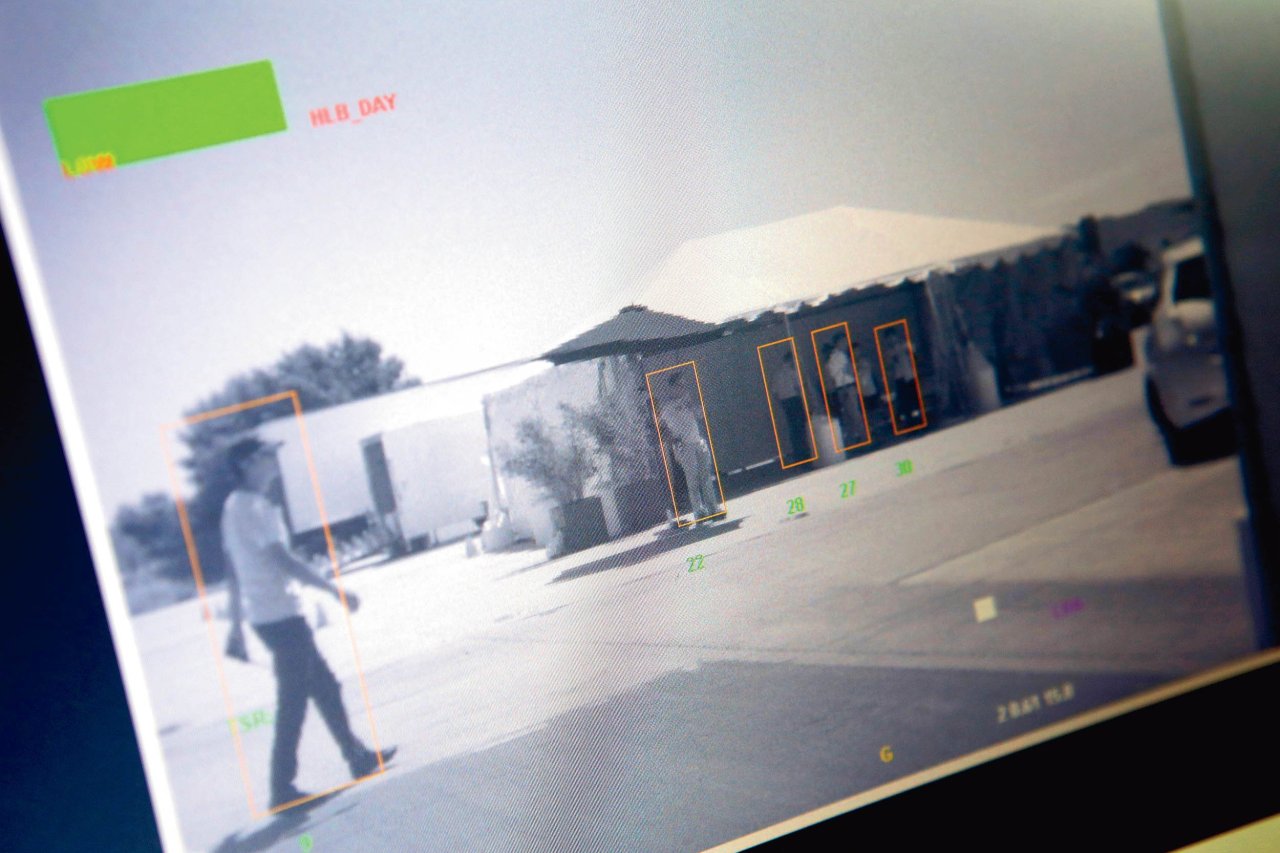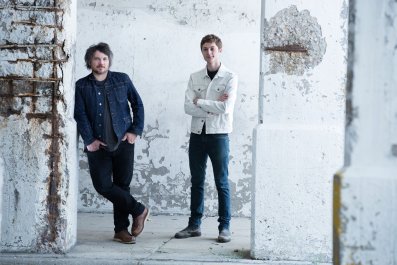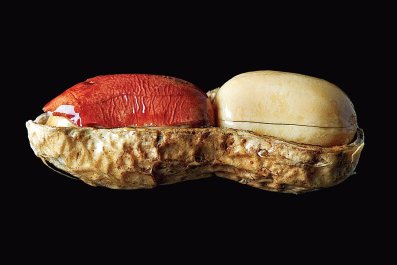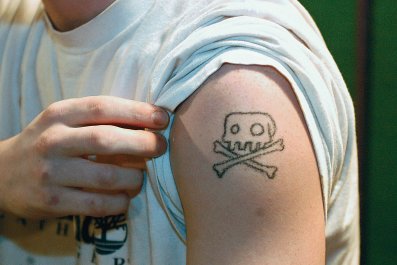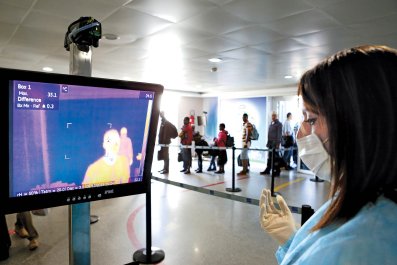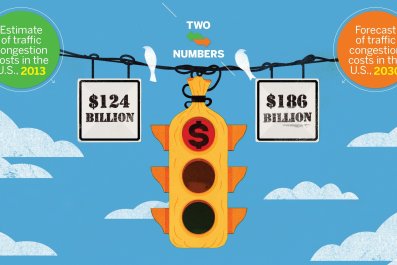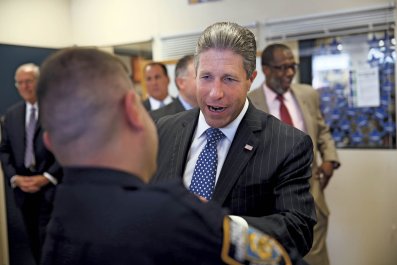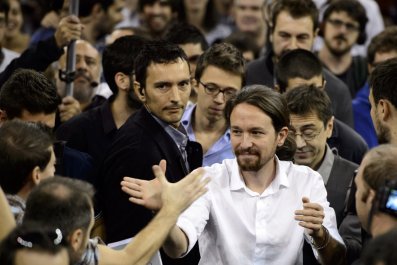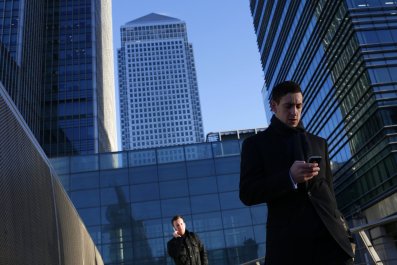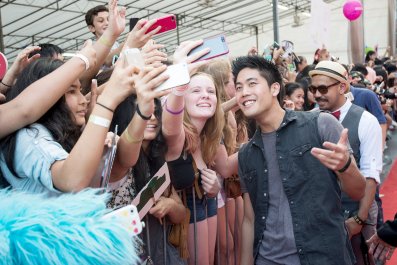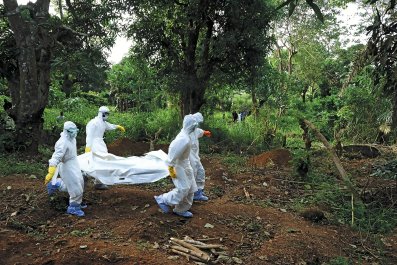In an Illinois suburb, Lora Hunt, 48, slammed her car into a motorcycle that was stopped at a light, throwing the rider, Anita Zaffke, 200 feet. Zaffke died. Hunt explained to police that she had been painting her nails while driving and didn't see the motorcycle until it was too late.
Technology is going to end that kind of craziness—not nail painting or sandwich eating or texting while driving, but it will stop cars from hitting things when we humans do whatever we're compelled to do instead of keeping our eyes on the road while blasting down a highway. Within a few decades, technology and data could render traffic deaths as rare and preventable as scurvy.
We can already see this change coming in breakthroughs like Tesla's autopilot technology, unveiled October 10. A new generation of data just starting to be collected from cars and trucks as they move will help, too.
The media are screaming about Ebola like a housewife who sees a mouse in a Looney Tunes cartoon, but the disease has so far killed one person in the U.S. Every year, traffic accidents kill more than 33,000 Americans—almost 100 a day. Crashes have killed 25 million people globally since the invention of the car. It's the leading cause of death of people ages 3 to 33.
Almost all those deaths are because of driver screwups, like driving distracted, drunk, tired or angry. So, really, it is profoundly stupid to put humans in charge of massive metal objects racing around at high speeds. Human-driven cars are as dangerous and foolish as above-ground nuclear tests.
We've been hearing for some time now about experimental autonomous cars, especially from Google. They stir up Epcot-like visions of a future where we hop into cars sans steering wheels and play Brick Breaker all the way to work. That may happen, but it would be a big leap from today. Tesla CEO Elon Musk just brought us a more feasible concept.
The new Tesla Model S will come with a system Musk describes as more like autopilot in airplanes, "where there is still an expectation that there will be a pilot," he says. The driver doesn't get a free pass, but the car can take over if the driver is paying attention to something other than driving.
The Model S autopilot uses 12 sensors, a camera and radar to read speed limit signs, stay in a lane and recognize objects such as other cars or pedestrians. It can "see" better than a human through fog or rain. As reviewers have noted, the car can already do a remarkable job of keeping you on the road while you read some texts or turn around to yell at the kids. As soon as next year, Musk claims, about 90 percent of your daily highway-driving miles in a new Tesla could be done on autopilot.
Musk's pronouncement is nearly as significant as Jonas Salk saying he's got the first working polio vaccine, and most major car companies are working on some version of autopilot or autonomous driving. Most have said it won't be real for another five to 15 years. Musk is forcing the industry to bring it on sooner. As a safety technology, autopilot makes seat belts and airbags seem crude. When the driver is about to screw up, the car takes over and puts on the brakes or turns the wheel. Some kind of autopilot could have prevented that nail painter plowing into the motorcycle. It could have kept Princess Grace on the twisty road in Monte Carlo. It could take control from countless drunken drivers.
The other important advance in fighting traffic deaths is data about driving. Shockingly little gets collected, but that's changing. Today's cars are already full of sensors and computers that can track speed, acceleration, braking and other factors. Most of that data never leaves the car. But insurance companies are increasingly offering deals for drivers: Attach a device to your car's computer that sends in data about your driving and we'll give you discounts if it shows you're a good driver. Companies like Automatic are like a Fitbit for your car, giving ongoing feedback about your habits and the car's performance.
As those programs get more popular, we'll build up data we never had before. Massive amounts of anonymous data could, for instance, identify dangerous intersections that need to be fixed. "There's so much data that's knowable, to know where crashes are occurring and why crashes are occurring, and attack them systematically, but we're not doing that," Joshua Schank, CEO of Eno Center for Transportation, told The New York Times.
If a constant flow of data about cars and drivers had been analyzed the past couple of years, the public could have spotted the ignition problem with General Motors cars after the first handful of incidences, preventing dozens of deaths.
Autopilot, like Tesla's, can help fix drivers. Data can help fix other problems, like dangerous roads and mechanical failure. What could get in the way of technology ending traffic deaths? Humans, of course. There will be concerns, rightfully, about data and privacy. And we'll want to hang on to driving, as if it's some kind of inalienable right. It's fun! It's a sport! How can we give that up?
Then again, people used to have duels when they got mad at each other, and that no longer seems like a good idea. The point of a car is to move us from one place to another. Safely. Technology will begin to separate driving from transportation, and sooner or later unassisted driving will no longer seem smart.
Now, of course, Tesla isn't building a $140,000 roadster with autopilot because people just want to get from one place to another. The car goes from zero to 60 MPH in three seconds, for Pete's sake. Will that be as much fun if the car is doing the steering? Have you ridden a roller coaster lately? Were you driving it?



